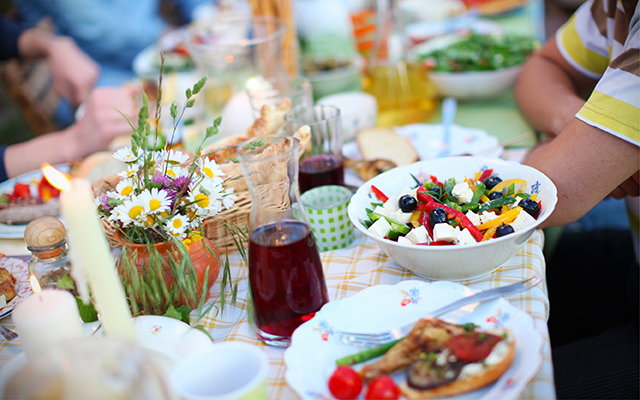A former colleague of mine once told me that her favorite Friday night was one in which the party she had planned to attend had been cancelled. I could relate: Sociability is not one of my strong suits. So I was less than enthusiastic on a recent Sunday afternoon when My Lovely Wife and I traveled across the river to St. Paul to a barbecue hosted by a family we had never met.
This was no small occasion. Our son, The Young Jarhead, was in town and his girlfriend’s extended family was eager to get to know us. The occasion hinted at something slightly portentous, which made me nervous.
I should note here that MLW and I have until quite recently been strangers to a world in which our offspring embark upon serious relationships. TYJ is 25 and only began dating a couple of years ago; our daughter is 28 and was also a bit of a latecomer to the dating scene. That has suddenly changed, a development that has delivered a mix of joy and vexation — I’m overjoyed to see our children in love with delightful people and I’m vexed at the prospect of an expanded family and its attendant social obligations.
But I better get over it, says James Iveniuk, because my social allergies could shorten my life.
Decreasing the Likelihood of an Early Death
Iveniuk, a post-doctoral researcher at the University of Toronto, and Philip Schumm, a senior biostatitician at the University of Chicago, recently published the results of a study suggesting that the larger your family network — and the closer your connections — the longer you’re likely to live.
Analyzing data from the National Social Life, Health, and Aging Project, their research team found that older adults (ages 57 to 85) with the most “close confidants” among family members had about a 6 percent chance of dying within five years. Those with the fewest family friends had a 14 percent mortality risk.
“Regardless of the emotional content of a connection, simply having a social relationship with another person may have benefits for longevity,” Iveniuk says.
But family is more powerful than friends in extending lifespan, he adds. “Because you can choose your friends, you might, therefore, expect that relationships with friends would be more important for mortality, since you might be better able to customize your friend network to meet your specific needs,” he explains. “But that account isn’t supported by the data — it is the people who in some sense you cannot choose, and who also have little choice about choosing you, who seem to provide the greatest benefit to longevity.”
This is not something a guy necessarily considers while gnawing on a rack of ribs and chatting with strangers who may someday be family, but it’s helpful to be reminded of the randomness of the family assemblage. Nobody gets to choose. You just have to deal with it.
The barbecue, of course, was perfectly fine; our hosts were every bit as gracious as the young woman whose connection to our son brought us into their midst. We traded a few stories, laughed at a joke or two, and navigated the few awkward moments as best we could. In a way, it was a bit like any other family gathering, lacking only a shared past — something only a shared future can provide.
I was half asleep the following evening when TYJ called. MLW held the phone to my ear as I rolled over in bed. “Dad,” he said, “I’m engaged!”
“You’re in jail?” I replied.
“No, I’m engaged!”
“Glad to hear it,” I croaked and rolled over, suddenly imagining more family gatherings featuring really good ribs.

This Post Has 0 Comments